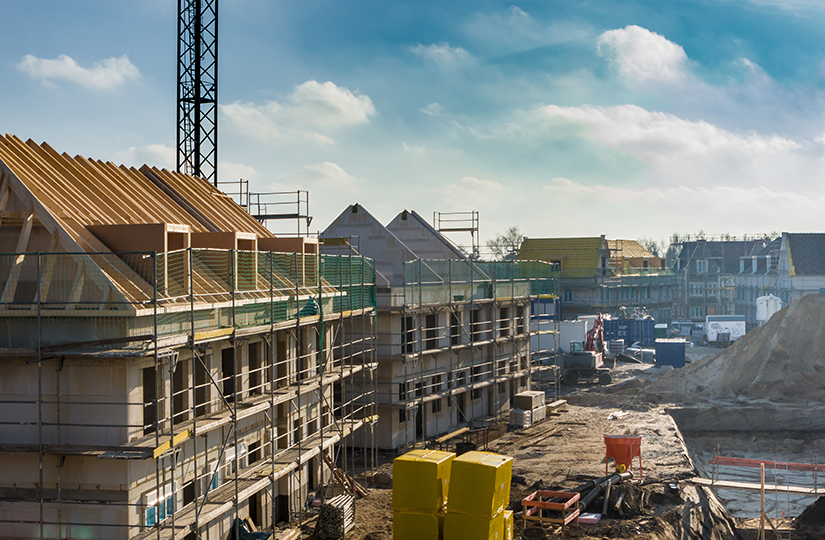Land Business Update | Week Commencing 13th July 2020
Welcome to our update on key land management, farming, planning and energy issues.
ECONOMY
Summer Economic Update sets out three-phase approach for recovery – protection, jobs and rebuild
The key announcements which affect the rural and property sectors are:
- Job Retention Bonus – a one-off payment of £1,000 for every furloughed employee who remains employed through to 31st January 2021.
- Kick Start Scheme – to create high quality six-month work placements for people aged 16-24.
- Apprenticeships – a payment of £2,000 to employers in England for each new apprentice they hire aged under 25.
- Temporary VAT cut – for food, non-alcoholic drinks, accommodation and attractions.
- Temporary increase in Stamp Duty Land Tax nil rate band from £125,000 to £500,000 – until 31 March 2021.
- Green Homes Grant – a £2 billion fund providing at least £2 for every £1 homeowners and landlords spend to make their homes more energy efficient. Up to £5,000 per household is available (and up to £10,000 for low income households). But see article below…
- Brownfield Housing Fund – £400 million for seven Mayoral Combined Authorities to bring forward land for development.
- Planning reform – to make it easier to build better homes in the places people want to live, including new regulations to make it easier to convert buildings for different uses, including housing, without the need for planning permission. See article below.
Environmental Audit Committee launches inquiry into home insulation as government wavers on manifesto commitment
Despite the government’s commitment of £2bn for Green Homes Grants in the Summer Economic Update, questions remain over its commitment to invest £9.2bn in energy efficiency of social housing and public buildings, according to the Financial Times. The policy is reported as being held up by Dominic Cummings who wants to spend the money on new housing rather than housing insulation. This came in the week that the Committee on Climate Change called for a ‘national effort’ to ensure that homes are well insulated. The £9.2bn was earmarked for insulation, housing decarbonisation and boiler upgrades. The March budget only allocated £100m to heat pumps and biomass boilers from April 2022, replacing the existing renewable heat incentive. The Committee on Climate Change’s clarion call of ‘do it now’ becomes ever more pertinent.
Build build build and ‘Project Speed’ planning changes
Before the Summer Update, Boris Johnson made a number of pledges to reform the planning system, including through the soon-to-be-enacted Business and Planning Bill. New regulations aim to give ‘greater freedom’ for buildings and land to change use without planning permission. Changes, planned for September, include:
- Allowing existing commercial properties, including newly vacant shops, to be converted into residential housing more easily.
- Changing the planning process for demolition and rebuilding vacant residential and commercial buildings as homes.
- Allowing property owners to build additional space above their properties through a fast track approval process.
The CLA has welcomed simplification of the planning system, which it has been asking for for many years. However, the proposals have not been universally welcomed. The Green Building Council said that, “a frenzy of building is not equivalent to building back greener” and called for more thought on energy efficiency, net zero emissions, waste avoidance, social value and biodiversity. Three of the main professional bodies – the RICS, RTPI and TCPA – have also expressed concerns about the carbon impact of the proposals, the quality of the housing stock that will be built and the government’s view of the planning system as a barrier rather than part of the solution. The Town and Country Planning Association was quite blunt: “Steamrolling over people’s views will be divisive and counterproductive. What we have heard from government this week is campaign rhetoric, not real leadership to enable meaningful change to tackle our health, housing and climate crisis.”
Further changes to the planning system to boost building
Following feedback from the construction industry, the Government has announced further changes to the planning system which it hopes will help boost building. Residential planning permissions which were due to expire between the start of lockdown (23rd March 2020) and the end of 2020 will be extended to 1st April 2021. The Government is also introducing a new fast track route to apply to change construction working hours. The aim is to make it easier for builders to follow public health guidance onsite and reduce the risk of infection. The change only applies up to 1st April 2021 and does not apply to work on individual houses. Other changes include measures to speed up the planning appeals process. The changes need new legislation to come into effect. Draft guidance on the extension of planning permissions was published on 6th July but it is not known when the draft will become final.
New £10 million Kick-starting Tourism Package
This new grant will give small businesses in tourist destinations from £1,000 to £5,000 to help them adapt their businesses following the pandemic. Businesses can use the funding, which will pay 100% of costs, to pay for specialist professional advice such as human resources, legal or financial expertise, to adopt new technology and online systems or to purchase new equipment. The funding will be allocated to each Local Growth Hub based on their area’s links to tourism and hospitality.
FARMING
Independent commission on post-Brexit trade policy
The government has ‘agreed in principle’ to set up a commission to scrutinise any trade deals agreed post-Brexit so that ‘high animal welfare and production standards are not undermined’. This is a significant and important first step but there is no commitment on what status the commission’s recommendations will have, with the Department for International Trade saying that the committee will only be advisory and time limited.
Scotland’s farming, fishing, food and drink industry set for £3 billion loss in 2020
The chief executive of Scotland Food and Drink has told the Scottish Government’s rural economy committee that the sector could lose 20% of its value in 2020 due to a “vast array of different challenges and issues”, including the shutdown of the tourism sector.
Claim deadlines for existing RDPE socio-economic projects extended
Claims can now be submitted up to six months later than originally allowed to enable claimants to deal with issues arising from the pandemic. This is not a blanket extension so applicants must get permission from the RPA for any delay in claiming.
Countryside Stewardship Mid Tier applications can be submitted after usual 31st July deadline
Applications can be submitted up to 31st August 2020 provided prior notification has been given to the Rural Payments Agency by 31st July 2020, under what is known as the ‘COVID-19 Exceptions Process’.
Agronomy update
The start of harvest is going to be a staggered and drawn out affair across the UK. Cutting of winter barley crops and forward oilseed rape crops has begun in southern England. Early indications are that yields may be higher than many feared and the forecast for the world wheat harvest has increased, despite the EU harvest being downgraded. Due to this, wheat and barley prices are expected to be ‘capped’ by global market prices. For oilseed rape, it is a year where pod sealants will prove to be a worthwhile management product as uneven crops, ripening at different times, leave the more mature plants exposed to heavy rains. Desiccation may also be needed in some barley crops where crop maturity is variable across fields and blocks. Winter wheat crops continue to recover well. Grain ears look a reasonable size and it will be tiller numbers that determine yields. Please contact Jock Willmott if you would like to discuss strategic or day-to-day agronomy.
PROPERTY
The commercial real estate sector post COVID-19 – what will be the lasting changes due to COVID-19
Our commercial property research team has painted a picture of what it thinks will be the lasting shifts in their sectors due to COVID-19. They include the potential for Build-to-Rent to both accommodate homeworkers and safely distance residents throughout the schemes; the need for flexible office space; the demand for data centres becoming mainstream; and calling time on the hotel breakfast buffet! Click here for a copy of our report and contact Steph McMahon if you would like to discuss the report or commercial property.






